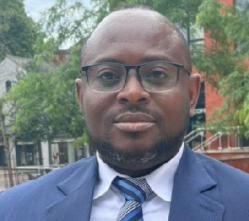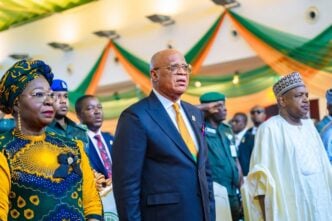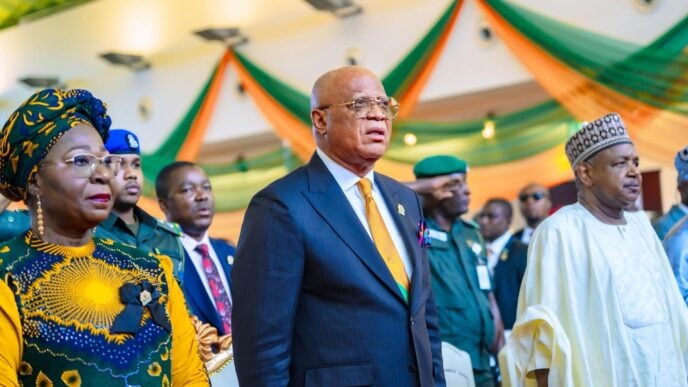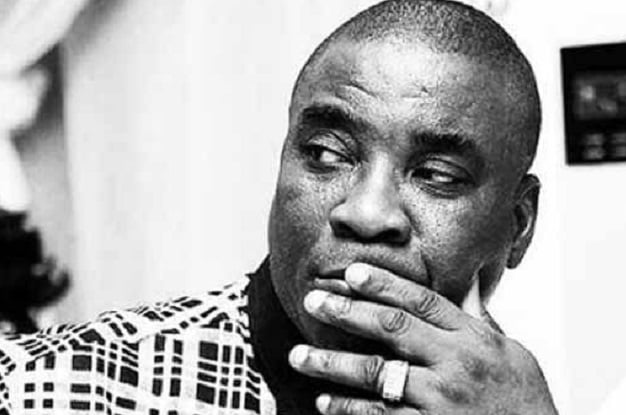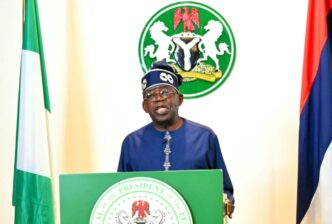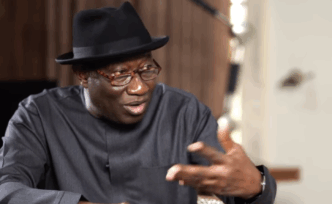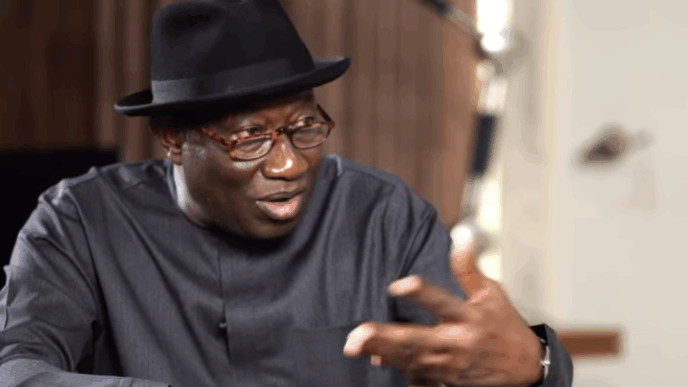I am constrained to join the debate on the proposal by some political figures aspiring for the highest political office in Nigeria to serve just one term in office and leave without seeking re-election. Many Nigerians have rubbished the proposal, claiming that it is just a political gimmick and deception by the proponents. I strongly align with those who share this view, given the manner of politics we practice in Nigeria. As stated in one of the previous articles, once a president gets into office, the huge second-term endorsements he gets from all manner of sycophants can make him change his mind, even if his original intention was to serve a single term in office.
While not making a case for the one-term proponents, especially Rotimi Amaechi, Peter Obi and Atiku, I, however, strongly reject the notion by some people that four years can never be enough for any president, no matter how good he or she is, to solve the myriad of problems confronting the Nigerian nation. Of course, only a psychotic person will expect any president to fix all the challenges facing our dear country in four years. However, four years is enough for any serious president to serve the interests of all Nigerians and establish a firm foundation for growth, stability, development and democracy. A serious-minded president can start the relay race on a solid footing and then hand over to a worthy successor to continue the relay marathon. After all, government, we are told, is a continuum.
The Nigerian constitution allows two terms of four years each. Most presidents and governors aim for the full eight, arguing that reform takes time. Yet, experience tells a different story. Once elected, the urgency of governance often takes a back seat to the politics of re-election. Less than one year into President Bola Tinubu’s administration, the opposition, especially from the northern bloc of the country, started talking about denying him a second term. First, Nasir el-Rufai started with SDP, and now the ADC is here. Of course, nobody expects the president to fold his hands and focus on governance while allowing his opponents to kick him out. It is widely believed in Nigeria that it is the first two years in a four-year term that matter; the next two years are used for politicking.
In Nigeria, once a politician gets into office, they hardly settle down to business with the urgency and alacrity that the electorates expect. They come into office brimming with promises, but many treat their first four years as a warm-up lap, delaying decisive action while focusing on re-election strategies. An example is the 2014 national conference convened by Goodluck Jonathan at the tail end of his tenure, which he couldn’t implement, as he lost his reelection to the late President Muhammadu Buhari in 2015. Many Nigerians, especially those in the opposition, then saw the confab as a political ploy by Jonathan to get re-elected. It is time we confront this dangerous pattern. Four years is enough for any serious president to achieve so much and leave a lasting legacy—if that leader is truly prepared, principled, and focused on performance rather than politics of re-election.
Advertisement
Nigerians are no strangers to the recycling of excuses. Each administration blames the previous one, citing “rot” as justification for inaction. But governance is not about lamenting problems—it’s about solving them. If a president cannot take meaningful action in the first term, what assurance do Nigerians have that a second term would be any different?
Take, for example, the late President Umaru Musa Yar’Adua, despite his tragically short time in office. He initiated a seven-point agenda and declared a state of emergency in the power sector. His administration negotiated an amnesty programme that drastically reduced militancy in the Niger Delta. He also took cognisance of the massive flaws in our electoral system, especially the presidential election which produced him, and on August 28, 2007, he instituted a 22-member Electoral Review Committee, headed by Justice Uwais, to critically examine the electoral process and advise on areas that required reforms. Yar’Adua made such a huge impact in just three years in office and would have done more but for his terminal illness. It is not about the longevity of tenure but because of political will, an ingredient that is lacking in governance in Nigeria.
On the flip side, many leaders who served full eight-year terms failed to deliver on even the most basic promises. What we have witnessed over the years is that many of them will perform creditably well in order to get the people’s support for another term. Immediately after they are re-elected, they relax and do basically nothing, as they know they won’t need to beg the electorate for votes again. Many presidents and governors in Nigeria rarely perform in their second term, as they focus on who will succeed them in office and protect their interests or rule by proxy. The second term often becomes a comfort zone—free from electoral pressure, yet rarely marked by urgency or vision.
Advertisement
We’ve seen presidents spend their first years touring international conferences, appointing cronies to key positions, or settling political debts. By the time the machinery of governance kicks in—if at all—four years have gone by, and the story becomes, “give us more time.” But democracy is not a monarchy; it is a contract. Four years is the term Nigerians signed up for, not a preparatory phase.
A serious president comes prepared. They have a clear policy direction, competent advisers, and an immediate action plan. There is no excuse for wasting years figuring out how the system works. If you needed four years to learn the job, you shouldn’t have applied in the first place. When President Muhammadu Buhari assumed office in 2015, it took him nearly six months to appoint his cabinet. This delay, described by his team as a “search for the right people”, created uncertainty and stalled critical policy decisions. The damage to investor confidence and bureaucratic momentum was clear—and the consequences haunted much of his first term.
Sadly, history repeated itself under President Bola Ahmed Tinubu. Despite campaigning vigorously on the platform of competence and renewed hope, it took nearly two and a half months after his inauguration to release a list of ministerial nominees. INEC declared Tinubu the winner on March 1, 2023, and he was sworn in on May 29, 2023. That means between the period he was declared winner and the period he was sworn in, the president had two months to form his cabinet and hit the ground running, yet he did nothing and waited till July 2023 to name his ministers. That is precious time wasted, but it doesn’t matter to advocates of ‘four years is not enough’. During screening, several of the nominees faced credibility issues; some were dropped, while some ministries went leaderless during a critical period of economic upheaval. In a country battling inflation, insecurity, and rising debt, such delays are not just administrative oversights—they are acts of negligence.
Governance is not a luxury of time; it is a race against underdevelopment, insecurity, poverty, and disillusionment. Wasting months to form a cabinet reflects a lack of preparation, not prudence. It is time for citizens to stop rewarding delay and incompetence with blind loyalty. Elections should be referendums on performance, not personality. If a president hasn’t delivered meaningful results in four years, we must ask: Why reward failure?
Advertisement
The argument that four years is too short collapses when you remember how quickly the same politicians enrich themselves. Within months of assuming office, convoys double, allowances swell, and state resources are redirected. The elite class wastes no time in securing their interests. Why should Nigerians accept a slower timeline for development?
We must stop romanticising long tenures. Great leaders are judged not by how long they serve, but by what they do with the time. In Lagos, former Governor Babatunde Fashola’s impact was already visible within his first term—especially in infrastructure and urban renewal. That set a benchmark. Leadership should be measured in outcomes, not occupancy.
Moreover, we must reject the notion that continuity equals progress. Continuity without competence leads to compounded failure. It is better to have a focused, impactful one-term president than a complacent, legacy-chasing two-term one. Four years is not a warm-up period. It is a full term, backed by public trust and constitutional mandate. A serious president should not be begging for more time—they should be racing against it. Nigerians deserve leaders who hit the ground running, not those who treat governance like
Nigerians must stop giving presidents the luxury of extended excuses. Four years is not a rehearsal—it is a full term entrusted by millions who are desperate for change. Any president who comes into office unprepared to act decisively from day one has no business leading a country facing urgent crises in security, economy, education, and healthcare.
Advertisement
We’ve seen the pattern: long delays in forming cabinets, vague policy directions, and constant blame games. From Buhari to Tinubu, valuable early months have been squandered, and the burden always falls on ordinary Nigerians. The time has come to demand better.
We must stop romanticising second terms. What Nigeria needs is not more time but more seriousness—leaders who know what they want to do, who do not need a second term to find their feet, and who treat every day in office as borrowed time.
Advertisement
As 2027 looms, Nigerians should ask every aspiring leader just one question: “What will you do in your first term—because you may not get another?” Because for any serious president, four years is not just enough—it is everything, as a second term is not a guarantee, as witnessed during the 2015 presidential election with Goodluck Jonathan.
Four years is enough for any serious-minded, servant leader to achieve much in office. A focused, disciplined leader can achieve progress in four years and willingly vacate office for another trustworthy leader to continue. It is doable in Nigeria. But do we really have sincere leaders in Nigeria who can pledge one term and abide by it?
Advertisement
Akinsuyi, former group politics editor of the Daily Independent, writes from United Kingdom. He can be reached at [email protected]
Advertisement
Views expressed by contributors are strictly personal and not of TheCable.
